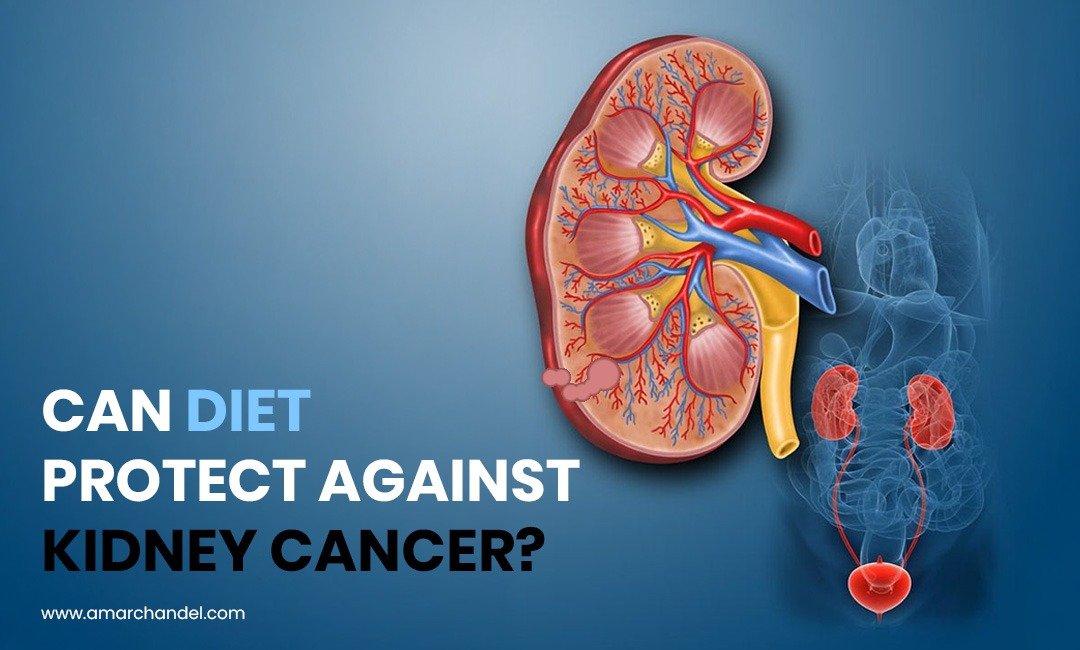Every year, over 81,800 people in the U.S. are diagnosed with kidney cancer, and nearly 14,000 die from it, according to the American Cancer Society’s 2025 report. Kidney cancer, particularly renal cell carcinoma (RCC), now ranks among the top 10 most common cancers in both men and women—and its incidence continues to rise globally. While about 4–5% of cases are linked to inherited conditions, the vast majority (over 90%) are thought to be influenced by modifiable lifestyle and environmental factors, particularly diet and nutrition.
So what role does food play in this growing epidemic?
Nitrosamines: More Than Just a Tobacco Problem
Tobacco use has long been identified as a key risk factor for kidney cancer. But with smoking rates steadily declining in many countries, the question arises: what else might be driving the increasing incidence?
One focus has been on nitrosamines, potent carcinogenic compounds found in tobacco smoke and also in processed meats. Research shows that one hot dog can contain as many nitrosamines as five cigarettes (Zhao et al., 2023). These compounds are formed when nitrites—used in meat preservation—interact with amines found in animal proteins during processing or digestion.
A landmark study from the NIH-AARP Diet and Health cohort, which followed over 500,000 participants for nearly a decade, confirmed that nitrite intake from animal sources—not just processed meats—was strongly associated with increased kidney cancer risk (Daniel et al., Cancer Causes & Control, 2012). Importantly, no such risk was associated with nitrites from plant-based foods, like vegetables.
Why Nitrites from Vegetables Don’t Carry the Same Risk?
This difference comes down to biochemical context.
While leafy greens like spinach and arugula are rich in nitrates, they also contain antioxidants such as vitamin C and polyphenols, which prevent the conversion of nitrites into carcinogenic nitrosamines in the stomach (Lundberg et al., Nature Reviews Nephrology, 2021). Conversely, in the presence of animal-derived amines and the absence of plant-based antioxidants, nitrites from processed or fresh meat can be converted into nitrosamines and nitrosamides, both linked to kidney and gastric cancers.
Deceptive Labelling: “Uncured” Meats and Celery Juice
Even meats labeled as “uncured” or “no added nitrites” are not necessarily safer. Manufacturers often use celery juice powder, which naturally contains high levels of nitrates, then ferment it to generate nitrites—essentially re-creating the same chemical risk under a different name. This practice is increasingly criticised as misleading by both researchers and food regulation bodies (Consumer Reports, 2024).
Plant-Based Diets May Directly Lower Risk
In the last five years, several large-scale studies and meta-analyses have further strengthened the link between plant-based diets and reduced kidney cancer risk.
• A 2022 meta-analysis published in Frontiers in Nutrition found that higher consumption of fruits, vegetables, legumes, and whole grains was associated with a significantly lower incidence of RCC, independent of weight or blood pressure.
• A 2024 study from Harvard’s T.H. Chan School of Public Health revealed that fibre intake was inversely associated with RCC risk, likely due to its role in improving insulin sensitivity, lowering inflammation, and reducing carcinogen exposure in the gut (Choi et al., JAMA Network Open, 2024).
• Importantly, these protective effects were seen even in individuals who were not obese and had normal blood pressure, suggesting that plant-based diets reduce cancer risk both directly (via anti-carcinogenic mechanisms) and indirectly (by reducing comorbidities like hypertension and diabetes).
Sodium, Obesity, and Indirect Pathways
High sodium intake is another dietary factor implicated in kidney disease and cancer. While it was once assumed that salt’s harmful effects were solely due to elevated blood pressure, recent studies suggest a direct link to renal cancer, likely mediated through oxidative stress and renal tubular damage (Gong et al., Kidney International Reports, 2023).
Similarly, obesity, insulin resistance, and type 2 diabetes—all diet-related conditions—are well-established risk factors for RCC. Diets rich in fiber, polyphenols, and plant-based fats appear to counteract these pathways, reducing cancer-promoting hormones like IGF-1 and inflammatory cytokines.
Key Takeaways from the Latest Science
- Nitrites from animal foods (including “uncured” meat) increase kidney cancer risk.
- Nitrites from vegetables are safe, due to the protective antioxidants they come with.
- Plant-based diets protect against kidney cancer directly (by preventing nitrosamine formation and inflammation) and indirectly (by lowering diabetes, obesity, and hypertension).
- Processed meats and excess sodium remain major dietary culprits in kidney cancer risk.

Final Word
In the 2025 dietary landscape, the evidence is stronger than ever: what we eat shapes our cancer risk—and nowhere is this truer than in the case of kidney cancer. As the science evolves, one message remains consistent: a diet centred on whole, plant-based foods is not just good for the heart, waistline, or blood sugar—it may also be the body’s best defence against cancer.
References
1. Zhao, Y. et al. (2023). Nitrosamines in Processed Meats: Comparative Risk with Tobacco Exposure. Journal of Nutrition and Cancer Risk.
2. Daniel, C. R. et al. (2012). Processed and red meat consumption and risk of RCC. Cancer Causes & Control.
3. Lundberg, J. O. et al. (2021). The nitrate–nitrite–NO pathway in health and disease. Nature Reviews Nephrology.
4. Choi, J. et al. (2024). Dietary fiber and kidney cancer risk: A prospective study. JAMA Network Open.
5. Gong, X. et al. (2023). Sodium intake and kidney cancer risk: mechanisms beyond hypertension. Kidney International Reports.
6. Consumer Reports (2024). “Uncured” Meats Still Contain Nitrites, Often Through Celery Juice.

